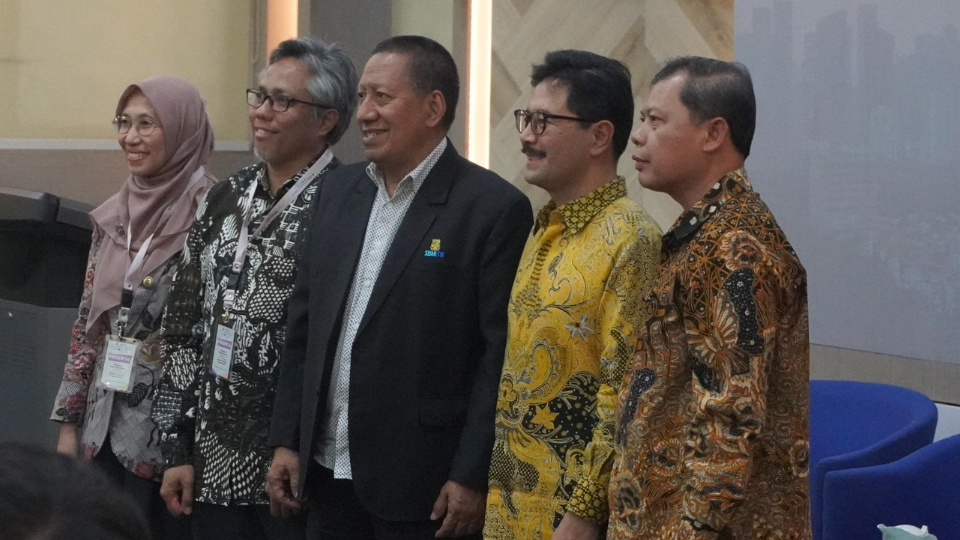SBM ITB in collaboration with the Faculty of Mechanical and Aerospace Engineering (FTMD), the School of Architecture, Planning, and Policy Development (SAPPK), and the Faculty of Industrial Engineering at Institut Teknologi Bandung, alongside PT Sarana Multi Infrastruktur (SMI) and the Ministry of Finance (Kemenkeu), held the 2024 Fiscal Decentralization International Seminar in Bandung on Wednesday (4/9). The seminar, themed “Creative Financing of Infrastructure Supporting SDGs Towards Indonesia Emas 2045,” served as a platform for academics, the private sector, and government representatives to discuss and explore ideas for developing creative financing across various regions.
The Dean of SBM ITB, Prof. Dr. Ir. Ignatius Pulung Nurprasetio, M.SME, opened the event by emphasizing the importance of creative infrastructure as an investment for the nation’s future.
“Creative infrastructure drives economic growth, improves the quality of life, and enhances community welfare. At SBM ITB, we contribute through education and societal engagement to address the challenges of development in the digital era as we move towards Golden Indonesia 2045,” he said.
Dr. Luky Alfirman, S.T., M.A., Director General of Financing and Risk Management, stressed the need for creative financing innovations and synergy in regional development. According to Luky, achieving the 6-7% annual economic growth target towards Indonesia Emas 2045 requires collaboration between the economic sector and regional development.
“This can help Indonesia become a high-income country,” he noted.
President Director of PT SMI, Reynaldi Hermansjah, discussed the role of PT SMI in providing innovative infrastructure financing solutions, particularly for regional development. He emphasized that research-based financing offers a way to improve the quality and equitable distribution of government funding.
“Additionally, it promotes competitiveness,” Reynaldi added.
Ludiro, Secretary of the Directorate General of Fiscal Balance at the Ministry of Finance, emphasized that the significant challenges in development funding must be addressed through creative financing sources. He referred to Law Number 1 of 2022 on Financial Relations between the Central Government and Regional Governments, which provides three financing instruments for regions: regional loans, regional bonds, and regional sukuk.
“These tools are expected to foster synergy in regional development financing,” Ludiro stated.
The seminar also promoted regional financing collaborations, such as the Government and Business Entity Cooperation (KPBU) scheme, encouraging regions with strong fiscal capacity and performance to adopt such models. For example, regions like Maluku and Central Sulawesi have established the Regional Endowment Fund.
The seminar concluded with signing a pre-heating cooperation agreement and closing remarks from Dr. Iendra, S.T., M.Sc., Head of the West Java Provincial Bappeda. He emphasized the need to improve human resource quality and development to tackle unemployment and boost GDP while aiming for an emission management target of 900 million as part of sustainable development efforts.
A series of workshops also complemented the event, including “Creative Financing of Regional Infrastructure” and “Transformative Regional Leadership for Accelerating Infrastructure Innovation,” featuring speakers from PT SMI, West Java Bappeda, and ITB academics.




